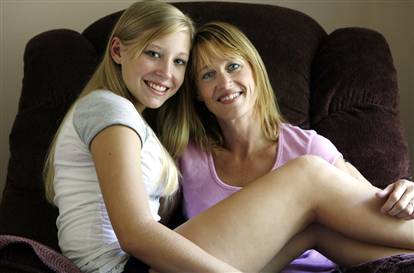10pc UK girls have STD linked to cancer by 16

London, September 20 A new study has revealed that 10 per cent of girls in the UK, aged under 16, are carrying a sexually transmitted disease (STD), which may give them cervical cancer later in life.
The figures from the Health Protection Agency show that more and more girls are infected with the human papilloma virus (HPV), which puts them at the risk of developing cervical cancer.
The institution has cautioned that the risk of girls’ contracting the virus rises ‘substantially' after the age of 14, two years before they can legally have sex.
Around 20 per cent of girls will have contracted the virus by the time they become 18, and 40 per cent of girls will be infected with the virus by the age of 24, suggest the figures.
Published in the British Journal of Cancer, these figures are the first to show how many young women are catching HPV.
During the course of study, scientists tested blood samples from 1,483 girls and women between the ages of 10 and 29. They found that 21 per cent of the volunteers had the virus, and that the risk of infection increased sharply at the age of 14.
Although most HPV infections do not show any symptoms and clear on their own, such infections can cause genital warts in men and women and cervical cancer in women, say the researchers.
"This study is a valuable addition to our understanding of HPV infection in women in England and should contribute to effective policies to prevent genital warts and cervical cancer,” the Daily Mail quoted Professor Pat Troop, chief executive of the Health Protection Agency, as saying.
"With the Government's recent announcement of the possible introduction of HPV vaccination, such research will help us and other public health experts to determine the impact of HPV vaccination," he added.
Health experts stressed the need for improvement in education and prevention programmes, so that youngsters could be protected from the disease.
"Statistics like this demonstrate a real need to improve education and prevention programmes which target young people. The Government must urgently implement a vaccination programme for girls and boys before they become sexually active and ensure resource is available to do so,” said Juliet Hillier, of the sexual health charity Brook.
"Sex and relationships education must be made a statutory part of the national curriculum. Young people must also have access to information and advice before they become sexually active,” she added.
Concerned over HPV, the Joint Committee for Vaccination and Immunisation has recommended giving injections of Gardasil to girls aged 12 and 13 with from autumn 2008. The vaccine, which is given in three injections over six months, must be given before puberty to be most effective.
Although health experts say that it could be 20 years before the first health benefits are seen, they insist that it may save thousands of lives. (With inputs from ANI)